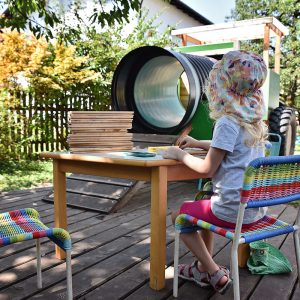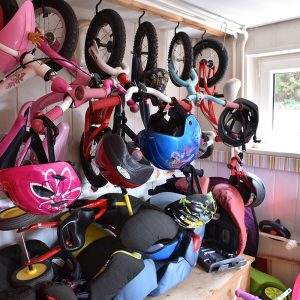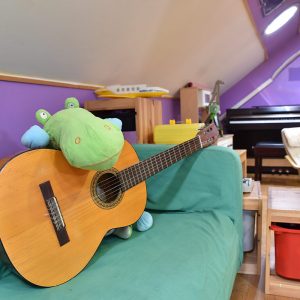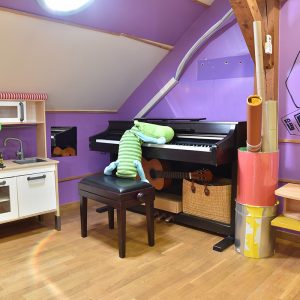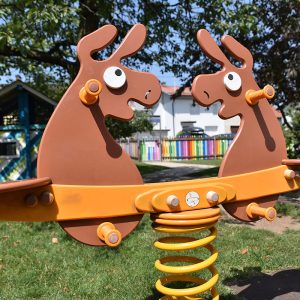This website uses cookies so that we can provide you with the best user experience possible. Cookie information is stored in your browser and performs functions such as recognising you when you return to our website and helping our team to understand which sections of the website you find most interesting and useful.
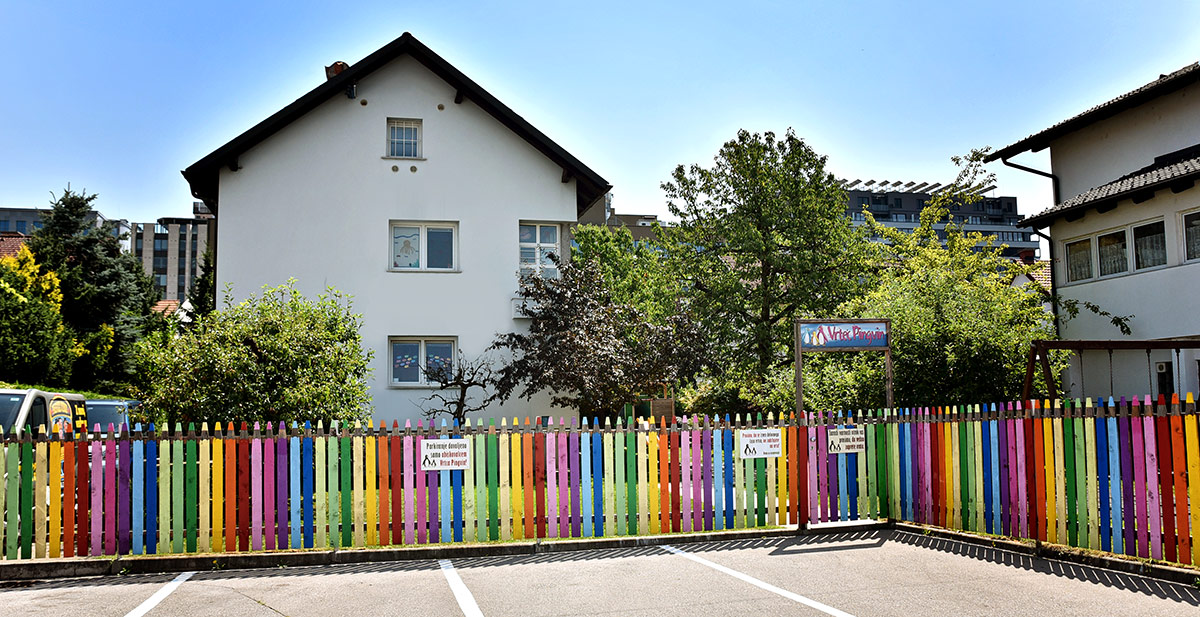
Private Penguin Kindergarten is the only private kindergarten that can boast of its own program approved by the strokovnega sveta RS za splošno izobraževanje ( Expert Council of the Republic of Slovenia for General Education) (ID 184072 01, based on decision 602-8 / 1997).
The program follows the planned annual work plan throughout the year and adapts to the weather and current events as needed.
We place great emphasis on the LIVING and MOVEMENT OUTDOORS.
The Penguin Kindergarten runs an educational program for children from the first year to preparation before going to school.
DAILY PROGRAM runs up to 9 hours for children I and II. age range, namely:
- Heterogeneous compartments of the 1st age range (Puhek Kindergarten),
- Heterogeneous sections 2nd age range (Penguin Kindergarten).
PINGVIN PROGRAM with activities:
The program has a wide range monthly themes as it is a great way to learn about a general topic such as the seasons, health and safety awareness, people around us, environment, and national holidays. Gradually, the educators dig deeper into the concept through music, movement, language, art, society, nature, and numeracy.
• ENGLISH WITH TADEJA AND NINA
Learning English is a huge part of everyday life at Penguin Kindergarten. Led by Tadeja Gomol who works hand in hand with Nina, a native English speaker, They ensure familiarization and constant repetition of the English language from fun activities to instructions of activities and daily routine. Children who learn a second language in their early years have a head start in language development that lasts a lifetime. Young children are geniuses at acquiring a second language. The children get better at their own familiar language and learn the melody and vocabulary of the 2nd language in a playful and fun way through songs, poems, scientific exploration, art, games as well asspecific activities that foster the development of English and Slovene.
• SPORTS AND MOVEMENT at GIB
Movement is a life-long activity; therefore it is important to teach children about sports, fitness, and movement because it not only helps them stay healthy both physically and mentally, but it is also great for developing them socially, emotionally, and cognitively. Once a week, the GIB Sports Association engages the children in different physical activities where they learn the basic elements, skills, and fundamental movements through tennis, games, and playing in the polygons. The visit to the trampoline park is everyone’s favorite where they do not only have fun but also strengthen all their body muscles and develop awareness on how our bodies actually move and work . Children are given the opportunity to outdoor sports where fresh air and bright natural light are important factors to one’s health as they enjoy rollerblading, ice skating, cross-country skiing, and other seasonal sports.
• DANCE CLASSES at FENIKS DANCE CENTER
The pre-school dance program is held once a week for 45 minutes with dance teacher Metka Mesesnel Bizilj. Aside from increasing the children’s fitness and activity, they also develop their listening and discipline…not to mention self-confidence and improved posture! Each of the choreography Metka introduces is linked to a story, a song, or a game. At the end of the year, the children proudly present their skill and hard work to their parents, friends, and relatives.We aspire for the children to receive quality dance education that will positively influence their overall development and discover more about themselves and the world through dancing.
• MUSIC by the method of Edgar Willems
Mateja Tomac Caligaris handles the music lessons where we meet each week and spend forty minutes together. She teaches them auditory perception so they learn to recognize different dimensions of sound, color, duration, volume. She also puts great emphasis on tone height, as this is very important later as the children grow. Through this exercise, children can decipher what is high and what is low. Our second area is rhythmic education, which is performed in conjunction with whole body motility. The child is accustomed to expressing himself physically in relation to the music he hears. We also do a lot of work to develop hand movements because which will come most handy for those who will play an instrument some day. The centerpiece of each lesson is singing, making sure that the songs are artistically and didactically appropriate to the age of the children. They must have appropriate text, age-appropriate range, and songs should be beautiful and have artistic content.
• ART HISTORY with PETRA
The importance of talking about the history of art with children is for them to appreciate beauty. They learn to pay attention to details, and feel gratitude and respect for all the goodness that surrounds them. Art also gives them the connection to explore the old and get to know the new. Art historian Petra Skaberne makes all sessions fun, interesting, and engaging. The children learn about art history and its key concepts from the world of painting, sculpture and architecture. She talks about how to distinguish the basic types of art techniques, and then reinforce the acquired knowledge through practical visits to artists’ workshops and graphic workshops. The children visit museums and galleries where children practice what they learn about how to s peak quietly, walk slowly, and look carefully without touching the art .
WINTER IN KRANJSKA GORA
During the winter season, the older children go on a 5-day winter trip to Kranjska Gora where the basics of skiing techniques are taught by ski instructors. Children have to be aware of each part of their bodies and learn to coordinate their movements to stay balanced on the slopes. The more they ski, the more their balance and coordination improve. The trip also is the perfect opportunity to be with their friends outdoors surrounded by breathtaking scenery, clean air and in the sunshine to play and enjoy. There are so many memorable activities that take part in this trip aside from skiing as the daily activities include sledding, cross-country skiing, walking around the countryside, and other winter joys. Additionally, this trip serves an important milestone as it strengthens the children’s independence being away from their parents, for example,packing clothes, getting ready for bed, and overcoming separation anxiety. In preparation for this, the educators put together a fun overnight event at the kindergarten to get a taste of how it would be without parents.
SUMMER CAMP IN DAJLA, CROATIA
During the warmer part of the year in June, the children go on a summer trip to Dajla. Swimming and other water fun games and activities happen. Aside from having fun in the water, walking around town, sunbathing, picnics, and camping in our own tents are all part of the trip. To prepare the children for swimming, the children will have a 10-day swimming lessons at the Water Park Atlantis.
